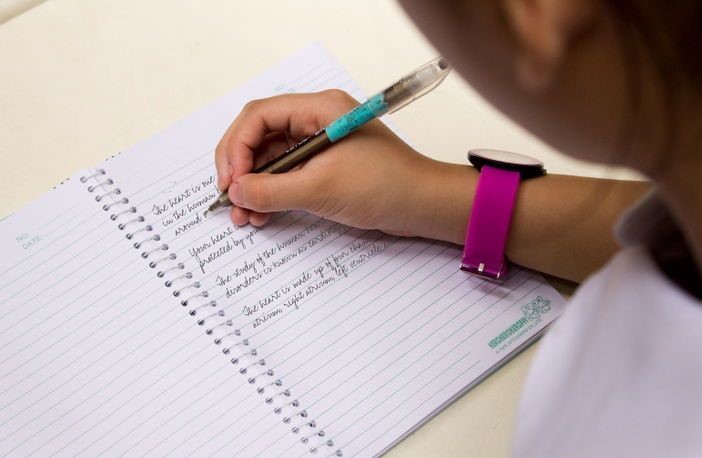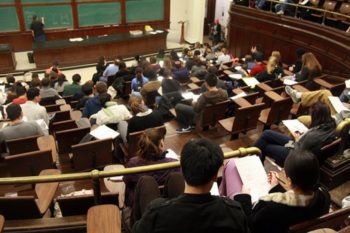
In our prior post on the habits and skills of successful students, we discussed reading for meaning. The ability to breakdown texts and separate important ideas and inessential details is crucial in academic work. Thus, it is priority one amongst the skills and habits of top students. However, efficient reading for meaning on its own is but one-half of the equation for retained understanding. The second half of the process is taking notes on the reading that are succinct, well-organized, and completed before the reading is discussed in class.
Taking notes on reading assignments prior to class discussion is the fastest route to better grades
If I can give one instruction to American middle, high school, and college students in terms of immediately improving their grades and understanding, I strongly urge them to read and take notes on class materials before they are discussed in class. A primary review, which includes reading for meaning and note-taking, will allow the student to be familiar with the important ideas in a chapter when they are discussed by teachers and classmates. This crucial step in preparation will massively increase the student’s retention of information and allows the student to function primarily as a listener and thinker in the classroom.
Why is it so important to be a thinker and listener during class discussion? Just like in skill #1, reading for meaning, we use class for thinking and listening because of the limits of the mind. The human brain is not built for multi-tasking at high levels of attention for more than a few seconds at a time. Current cognitive research shows that multi-tasking significantly deteriorates attention and memory encoding for both primary and secondary tasks. See references on attention and multitasking here: http://www.facultyfocus.com/articles/teaching-professor-blog/multitasking-confronting-students-with-the-facts/ and here: http://hilt.harvard.edu/files/hilt/files/notetaking_0.pdf for more information.
Class time is for thinking and listening, not note-taking!!!
In a classroom, those who can listen and think about the information being discussed are at a massive advantage over those who will act as stenographers as they write down every detail of the teacher’s words. Students who are writing lots of notes in class are unable to efficiently process the information that they are listening to. The mind is incapable of listening, writing, and thinking at the same time for more than a few seconds. When a student acts as a multi-tasker in class, he or she is wasting precious stores of attention. The students might as well be trying to take notes while out at the mall, riding a skateboard, or playing a videogame. That’s how impaired their attention is when trying to multi-task in class by listening, writing, and thinking at the same time.
Further, when a student enters a class discussion of new material without a baseline familiarity with the ideas and terms discussed, he or she has a much lower likelihood of retention. To say things simply, if a student comes unprepared for a class discussion of moderately complex ideas (like in English or history classes) or one with lots of technical jargon and vocabulary (like science or social science coursework), the student’s mind is working as if he or she were listening to an unfamiliar foreign language.
The student who has read the text for meaning, taken notes that are succinct and capture the thesis, supporting ideas, and key terms and definitions, has begun the process of cognition and encoding into long-term working memory. If he or she comes to class with notes in hand, listens intently to class discussion, and edits and adds to notes as appropriate, then the student will have done nearly all of the work in learning and retaining the important information. The information will now be well-digested and encoded in the memory for easy recall on test day.
Rather than spend hours reviewing the text and review packets, this student will simply review his or her notes for a modest amount of time. A student who has read and taken good notes and brought them to class for clarification and editing will not need to spend hours and hours preparing for tests. Such a student is acting in tune with the limits of the mind and the efficient working of the learning process.
There is even more good news than meets the eye here. There will be times when even the most gifted students are unable to fully grasp all of the important ideas, terms, and definitions in a new chapter. In such cases, note-taking and preparation before class discussion is even more crucial. When a student reads and takes note first, he or she enters the classroom with an inventory of that which is well-understood and that which is unclear. The student can make a note to him or herself to listen especially intently for clarification on the points that are unclear.
If for example, in a chapter on plant life in biology, a student reads and takes notes prior to class and understands ideas about photosynthesis and metabolism, but does not understand hybridization, the student will make a note and listen very closely to the teacher when hybridization is discussed. The existing notes can then be edited to reflect the instruction and clarification. If the student still does not understand hybridization at this point, he or she can turn to the instructor for further clarification. If afterward he or she is still unclear, then the student knows that tutoring or help from a fellow student is required and he or she can then obtain the specific help needed.
Most students don’t know which ideas they don’t understand until it is too late
Contrast this situation with the typical student pattern. Usually, the student has not read and taken notes before the subjects are discussed in class. The student will try to listen, learn, and take notes on the discussion, much of which is disorganized, incoherent, and not useful in the process of learning and recall. The student will likely not read the text until the days leading up to the test and may not ever do so.
The student will not have a good inventory of what he or she knows and does not know until the last minute, if at all. This typical student will likely spend the night prior to test day engaged in counter-productive re-reading of the text and incoherent notes or will inefficiently try to cram the information into the mind through rote memorization. These methods lead to high anxiety, confusion, and poor recall.
How can such a student expect to correctly answer 85% or more of the test questions in such a case? The typical student has used methods that are completely at odds with learning and mastery.
Achieving solid grades is easy if you have the right methods and have the habits that lead to preparation and retained learning. Nearly any student in America can be a consistent B+ student in middle school, high school, and college if he or she knows what to do. Most could easily be A students with some refinement of study methods and  time-management.
time-management.
If you or your child wants to learn the methods of efficient reading, note-taking, test preparation, and essay writing, then you need our Learning to Learn study methods course. Add in our time-management and mental performance skills course (for teens or for college students) and you or your student can rise to the top of the class.
